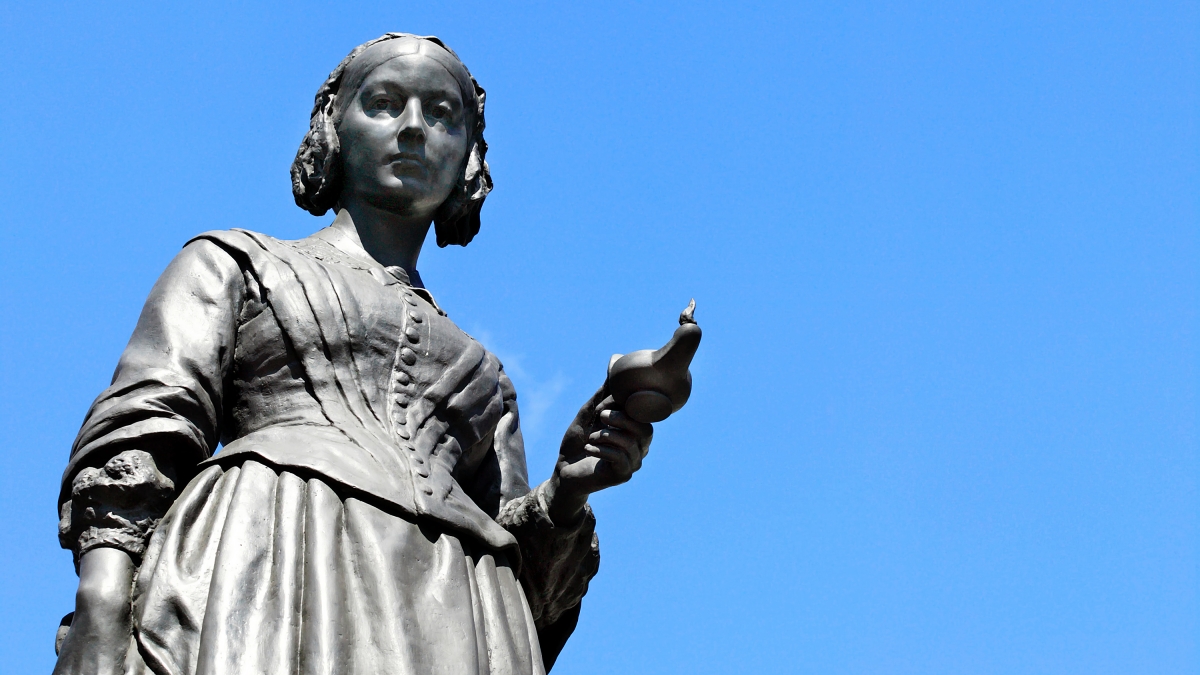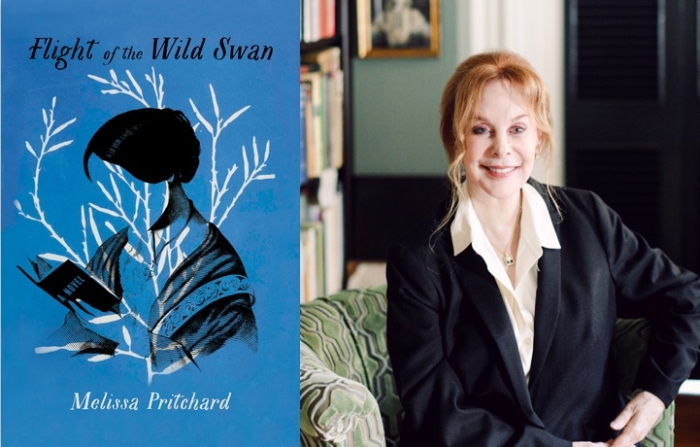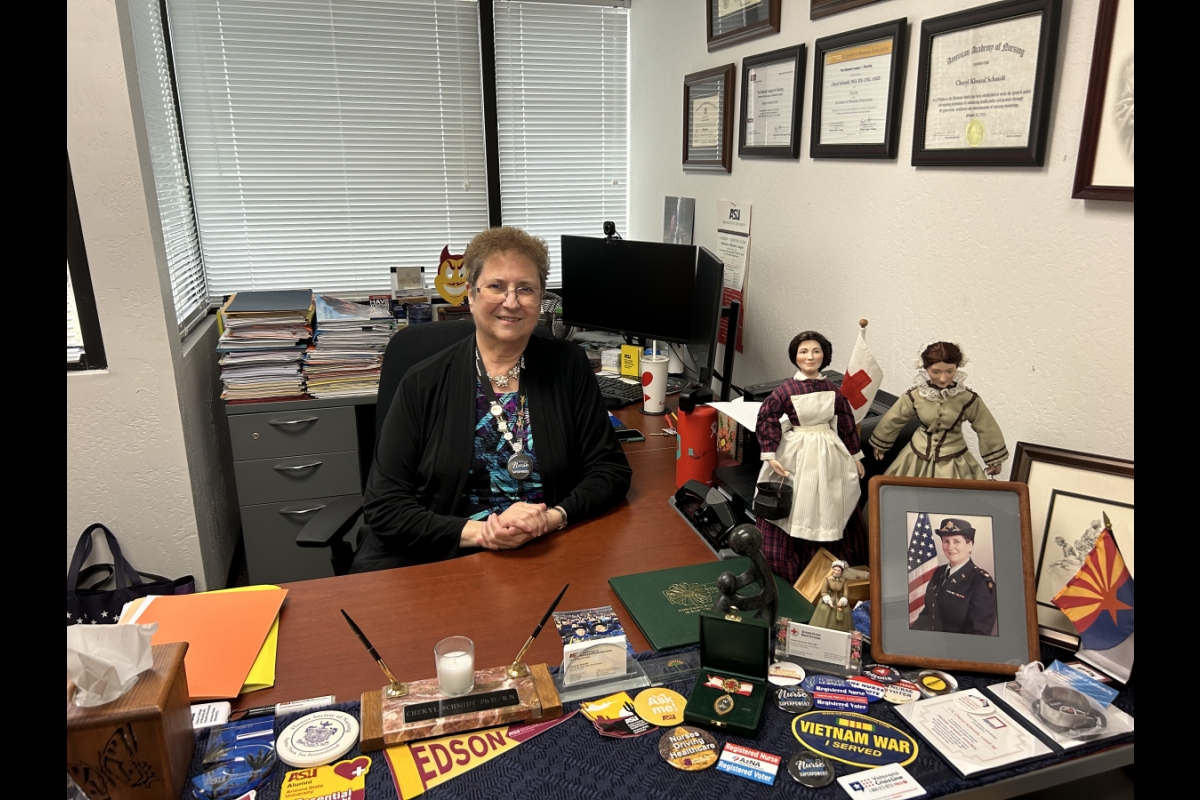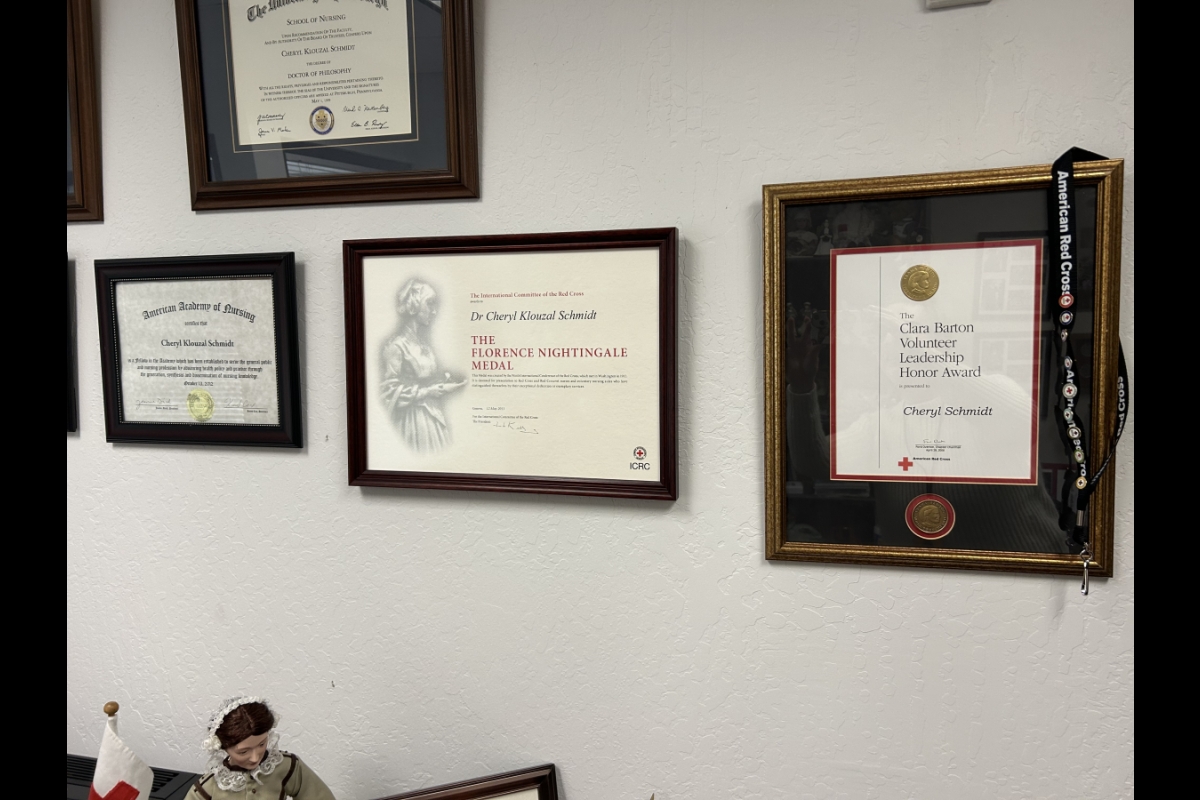New book pays homage to Florence Nightingale

Statue of Florence Nightingale. Photo courtesy iStock/Getty Images
If Florence Nightingale were alive today, she’d fit right in at Arizona State University.
Perhaps best known as “The Lady with the Lamp,” a moniker that pays homage to the iconic figure she cut while tending to wounded soldiers on the battlefield at night, Nightingale was also a social reformer, a scientist and a brilliant statistician whose introduction of the pie chart formed the basis for future research and complex medical studies.
Q&A and book signing
7 p.m. Monday, April 29
Changing Hands Bookstore, Tempe
Details
Put simply, she was an innovator.
Those lesser-known aspects of her identity are what ASU Professor Emeritus of English Melissa Pritchard hopes to bring to light in her new book, “Flight of the Wild Swan,” published this month by Bellevue Literary Press.
“I wanted to unpack the Victorian myth, find the real woman,” Pritchard said.
As it turned out, while researching the book, Pritchard “discovered Nightingale to be a far more complex and compelling person than the sentimentalized ‘Lady with the Lamp.’”
“Not only was Florence Nightingale the founder of modern-day nursing, she was also a revolutionary statistician, an indomitable social reformer and, more privately, a visionary and mystic. She was, and still is, a force,” Pritchard said.
A first-person imagining of the “real” Nightingale, “Flight of the Wild Swan” tells the story of the woman that ASU Clinical Professor Cheryl Schmidt calls “the premiere community health nurse.”
Edson College Presents: The Lady Behind the Lamp
3:30–5 p.m. Tuesday, April 23
Student Center @ The Post Office, Downtown Phoenix campus
Register
She should know. Schmidt, who served 22 years in the U.S. Army Nurse Corps, teaches community health at ASU’s Edson College of Nursing and Health Innovation, and is a recipient of the Florence Nightingale Medal — an honor that has been bestowed on just 39 nurses worldwide since it was established in 1912.
“It's hard to imagine anybody following in her footsteps that wouldn't have learned from her,” Schmidt said of Nightingale.
During the COVID-19 pandemic — when Valley hospitals were closed off to nursing students who normally relied on them to get their clinical hours — Schmidt took inspiration from Nightingale and brought the students to the community, supervising hundreds of nursing students at drive-thru vaccination sites.
“I think that showed that nursing students can actually add to the staffing (during times of crisis),” even helping to prevent burnout, the same way Nightingale’s persistence led to more women being allowed into the nursing profession, Schmidt said.
Both Schmidt and Pritchard consider Nightingale an inspiration, not just for all that she achieved, but for the fact that she did so as a woman in a traditionally male-dominated profession, an experience they both know something about.
Schmidt was one of the first women to chair a committee for the then-brand-new BSN program at Eastern Michigan University in the 1970s.
Pritchard said: “I found points of emotional identification. … I, too, had felt the restrictions of patriarchy and misogyny.”
And both Schmidt and Pritchard agree that Nightingale’s influence transcends generations.
“For women, she is still incredibly relevant and enduring as a role model,” Pritchard said. “… She continues to set a standard for courage, intelligence and focused purpose in the face of male-dominated privilege, resistance to innovation and change.”
The Edson College will host Pritchard Tuesday, April 23, for a presentation and Q&A session at the Student Center @ The Post Office on ASU's Downtown Phoenix campus. Registration is now open for the event, which is free and open to the public.
Pritchard will also give a reading from "Flight of the Wild Swan," followed by a Q&A and book signing, at 7 p.m. on Monday, April 29, at Changing Hands Bookstore in Tempe.
Advice to women writers
Florence Nightingale wrote nearly 200 books, pamphlets and articles during her life. ASU Professor Emeritus of English Melissa Pritchard advises other women writers: “Aspire — quietly — to greatness. Seek out the best in women’s literature, in all literature. Learn to distinguish between temporary celebrity and lasting art. Read poetry, if for no other reason than to elevate your own prose. Learn to love solitude. Find ways to help others. Never give up on yourself or your work. A woman writing today can experience a wildly rich, deeply connected, independent life.”
More Arts, humanities and education

ASU professor's project helps students learn complex topics
One of Arizona State University’s top professors is using her signature research project to improve how college students learn science, technology, engineering, math and medicine.Micki Chi, who is a…

Award-winning playwright shares her scriptwriting process with ASU students
Actions speak louder than words. That’s why award-winning playwright Y York is workshopping her latest play, "Becoming Awesome," with actors at Arizona State University this week. “I want…

Exceeding great expectations in downtown Mesa
Anyone visiting downtown Mesa over the past couple of years has a lot to rave about: The bevy of restaurants, unique local shops, entertainment venues and inviting spaces that beg for attention from…




